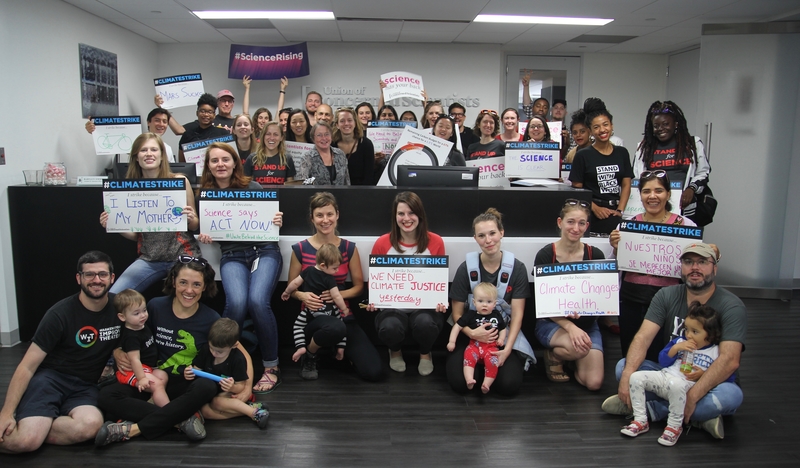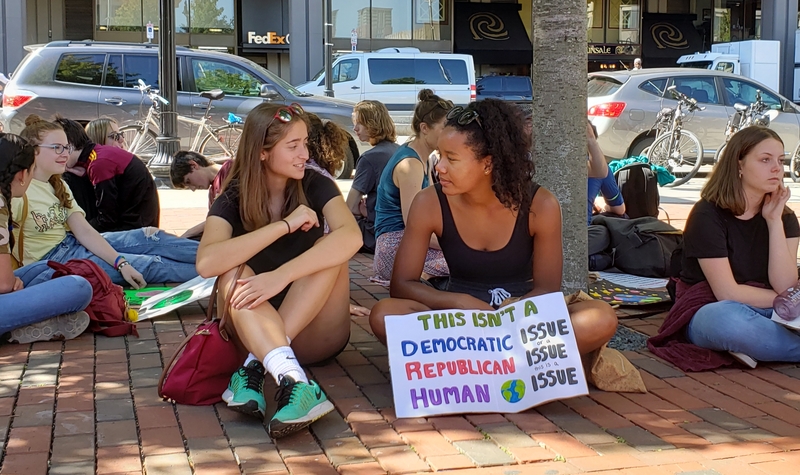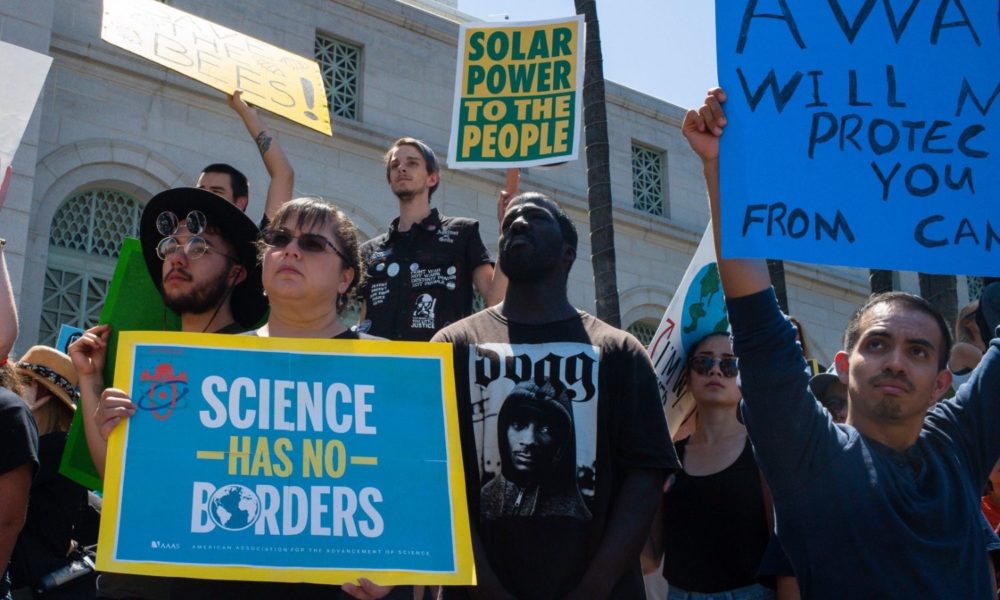September is Early Career Scientist Month, a time to celebrate the contributions that students, post-docs, and early career scientists and researchers make not only to the STEM community, but to our broader society as well. I have heard from many early career scientists that they do not always have the support, training, or resources to engage in science advocacy, even when they recognize that it is important for scientists to embrace their role as advocates. That’s part of the reason that here at UCS, we go all out for Early Career Scientist month, to help build a sense of community and support for everyone who identifies as an early career scientist, especially those who want to get involved in science advocacy.
The UCS Science Network is a great place to start getting involved in science advocacy. We offer programs like our leadership development opportunities through the Team-Based Organizing Initiative and mini grants through the Science for Public Good Fund to help you get started in organizing other science advocates and fund your local efforts. The Scientist Advocacy Toolkit is a one-stop shop for guides on everything from how to craft a one-minute pitch to policy makers to how to build trust with environmental justice communities when you’re an outsider. Check out stories from other early career scientists who are using their skills to engage in policy and make a difference in their communities. And all month long, you can check out our content on Twitter for even more trainings, resources, stories, and tips for how to get involved.
As someone who has worked for more than a decade in advocacy, here are my top three tips I’d offer to early career scientists who are looking for advice on how to get started in science advocacy.
1. Find a like-minded community who supports your advocacy

Advocacy is a marathon, not a sprint. In order to stay energized over the years that it can take to pass policies, enforce regulations, and build relationships with key stakeholders, it’s important that you’re not trying to do everything on your own. Plus, all of this work is more fun when you’re doing it with other people who share your values and goals!
Check out these organizations and initiatives who are working to support early career scientists interested in advocacy:
- 500 Women Scientists, a grassroots organization with local pods all around the world, working to serve society by making science open, inclusive, and accessible, and transforming society by fighting racism, patriarchy, and oppressive societal norms.
- National Science Policy Network, a non-profit representing early career science policy, advocacy, and diplomacy groups distributed across the country, focused on providing a platform for sharing resources, building relationships, and training the next generation of scientists and engineers to be pivotal voices in all levels of policy making.
- National Diversity in STEM conference (organized by SACNAS), the largest multidisciplinary and multicultural STEM diversity event in the country. This conference serves to equip, empower, and energize participants for their academic and professional paths in STEM.
- Team-Based Organizing Initiative (UCS), a leadership development program designed to support scientists and experts in launching a new science advocacy group or increasing the skills and success of an existing group. We offer tangible tools for local advocacy, a network of peer support, individualized coaching, access to funding and recruitment support, and action opportunities for local, state, and federal impact.
When you shift from taking action on your own to working with others to build your capacity together, you’re building power. In order to see the transformative change we need on issues like climate change and racial justice, it’s critical that we’re building power for a more inclusive science advocacy movement, and centering the needs of impacted communities as we fight for a healthier and safer planet. To learn more about movement building and power building, and approaches to do this inclusively, check out the resources in our guide, “Strategies and Tactics for Stronger Science Advocacy.”
2. Don’t limit yourself to your specific area of expertise

Are you passionate about immigration reform? Talk to your elected officials about what this issue means to you as both a scientist and a constituent. Are you a climate scientist who cares about increasing bike infrastructure in your city? Find out if there are boards or departments who are working on this issue, and get involved. If you’re a cell biologist, you don’t need to limit yourself to only advocating on issues that connect to cell biology. Scientists can play a critical role in advocating for a wide range of issues because they can speak with authority about the importance of evidence-informed decision making, and how to use data and analysis to inform the policy making process.
One timely example of this is the importance of scientists engaging in voter redistricting processes around the country, to ensure that census data is being used for fair representation. As my colleague Michael Latner writes,
“there is a more fundamental contribution that scientists can make to these efforts: scientists are authorities on the scientific method. One of the core commitments of that method is experimentalism, and the link between experimentalism and democracy is direct: democracy is a form of collective decision making, based on the same design principles of open and transparent consideration of independently verifiable information.”
Here’s another great interview from Engineers and Scientists Acting Locally with astrophysicist Louis Abramson on how he got involved in the Central Hollywood Neighborhood Council:
“I saw that scientists could help improve the living conditions of people, and that engaging in the political process was an effective way to go about it. We spend a lot of time as scientists and engineers learning how to think about very complicated things, but tend not to apply our intellectual and analytic skills outside of our narrow subject areas. If you have our training and curiosity, then the same neurons that drove you to learn about biology or chemistry can be used to solve other problems. I haven’t met a scientist who only got into this field for their own intellectual advancement. People do it because they want to work for the betterment of the species, which inevitably means wanting to improve people’s material conditions. We are members of communities, and it’d be a shame to lock up all our skills and not turn them outwards.”
3. Practice building relationships

Yes, relationship building is a skill. And I’m not talking about networking, so if the idea of talking with strangers at a stuffy reception at a conference makes your palms sweat, don’t worry! I’m talking about listening, learning what drives people, and sharing what drives you to want to get involved in advocacy.
Take the time to grab coffee with a community leader who has been working on the issue that you care about, and hear their stories. Ask questions and actually listen to the answers. Think about investing time in relationships just like you invest time in practicing other skills.
Relationship building will help you at every step of your advocacy path, from power mapping, to identifying and working with allies, to your meetings with decision makers and their staff. And if you want some tips on where to get started, you can find resources about setting up one-on-ones, a foundational tool of organizing.
Follow @SciNetUCS or #EarlyCareerSci on Twitter for additional content for early career scientists on how to get started in advocacy, find resources, opportunities, and support, and connect with others who can support you in your advocacy journey.

